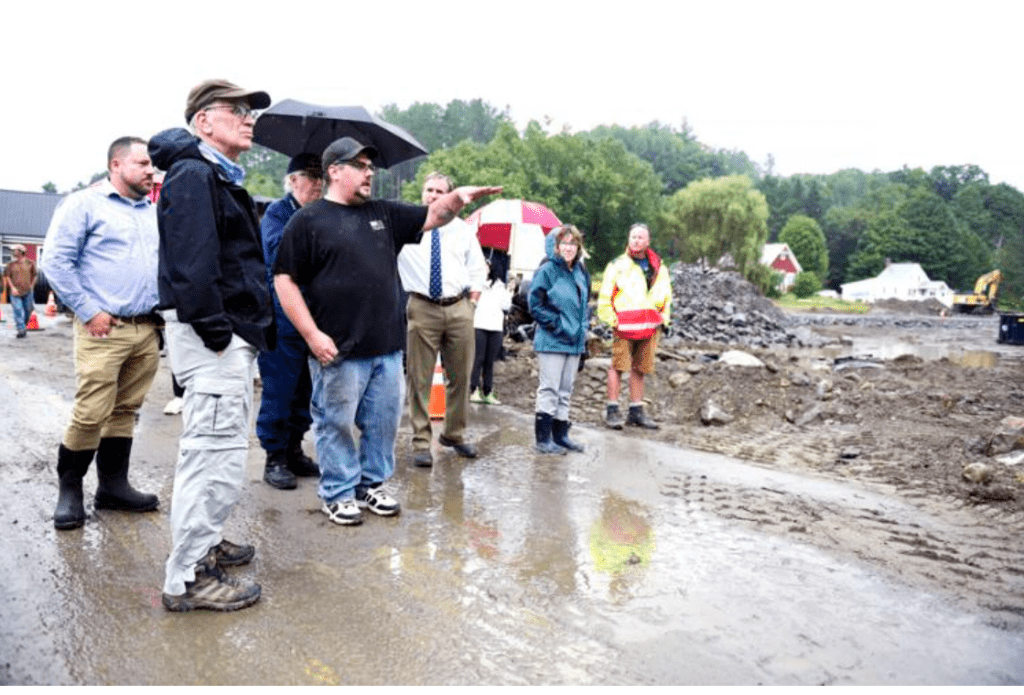
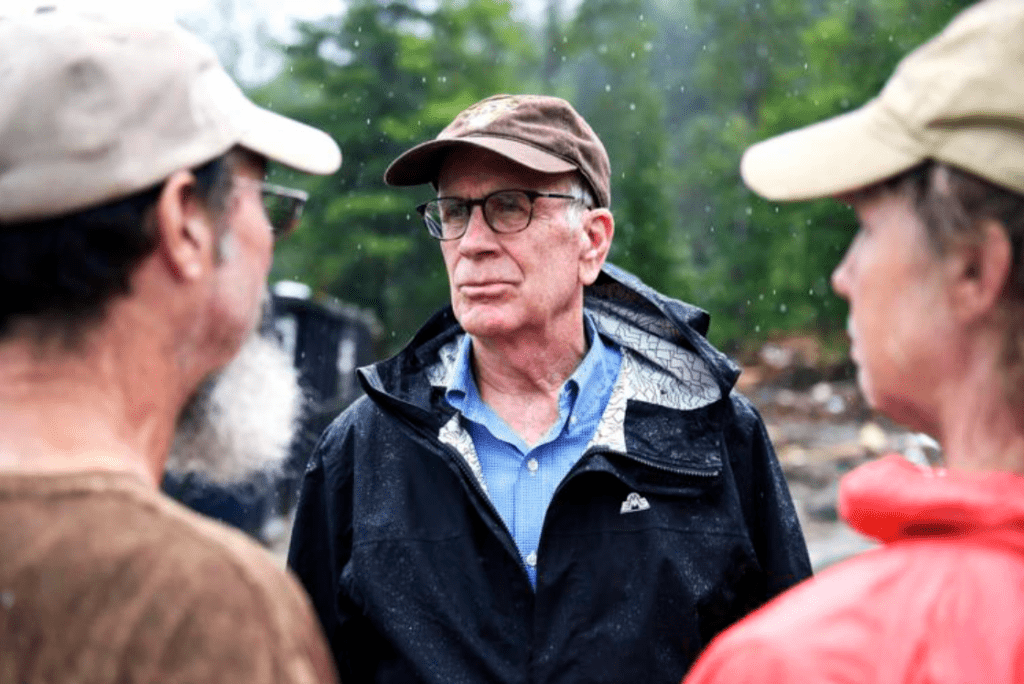

Sen. Peter Welch tours flood devastation on Red Village Road on Monday, Aug. 5, 2024 (Photos by Paul Hayes)
LYNDON — Federal officials this week promised to fix the broken Federal Emergency Management Agency (FEMA) disaster aid process.
Touring flood-damaged east Lyndon on Monday, Sen. Peter Welch said he would do his part to reform the notoriously slow FEMA system.
“What I see as the major problem is that the decisions are made by a distant Washington-based or Dallas-based or Houston-based branch of FEMA,” Welch said. “You really have to have more local control is my view.”
Meanwhile, Jarrett Devine, FEMA’s deputy regional administrator, pledged to personally inquire why Lyndon had not yet received $453,000 in long-awaited reimbursement for 2023 storm repairs.
“I have a meeting with the state recovery coordinator [Tuesday],” Devine said. “I’m going to ask them about the Town of Lyndon and why we can’t get this money out.”
Town Administrator Justin Smith, who has criticized FEMA’s handling of the 2023 claims, reacted with cautious optimism that federal officials would follow through on their promises to make things better.
“The proof will be in the pudding,” said Town Administrator Justin Smith. “I mean, words are words and actions are actions.”
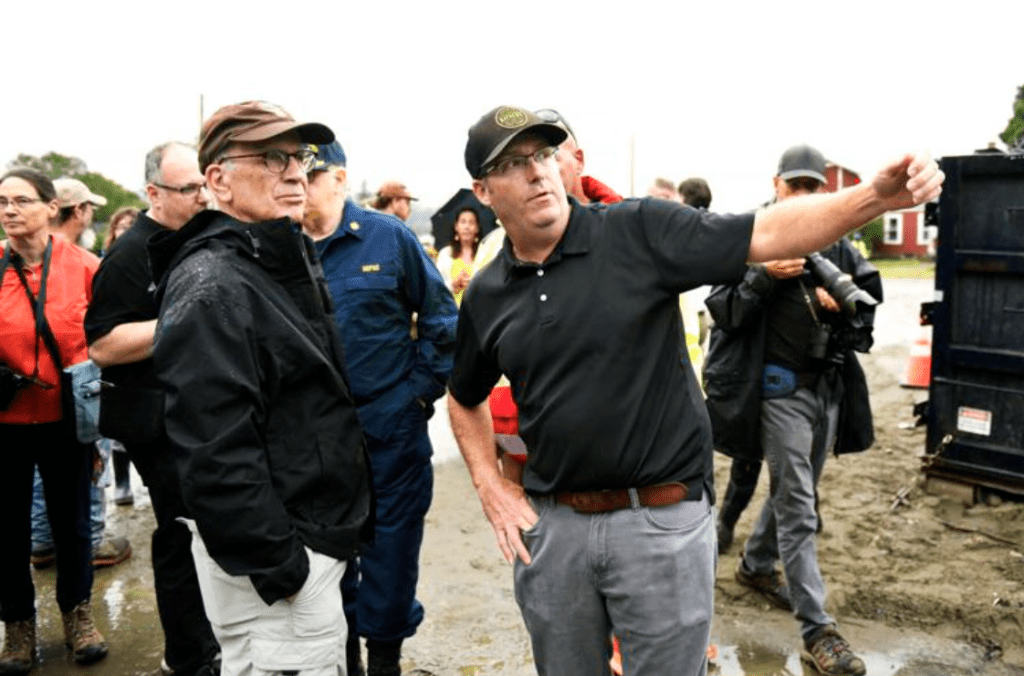
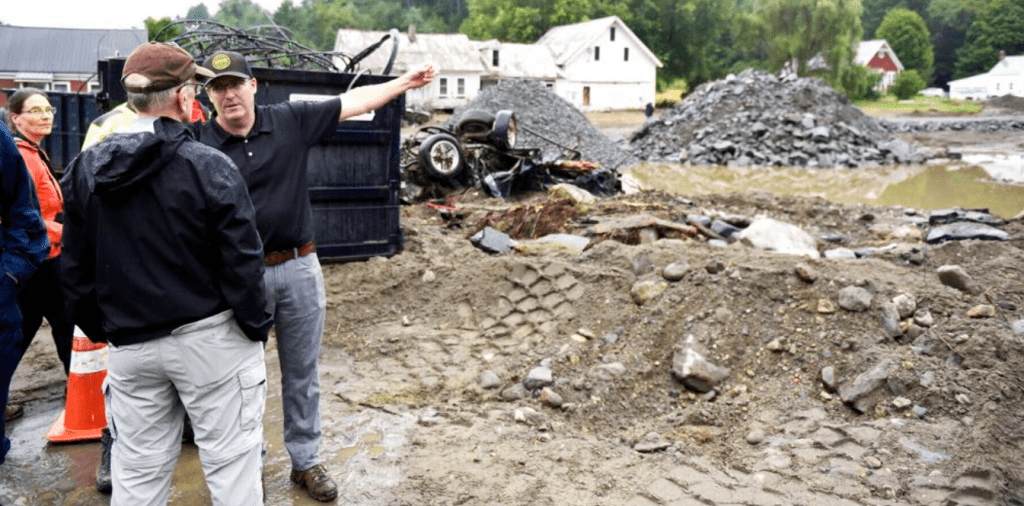

Town Administrator Justin Smith, right, speaks with Sen. Peter Welch at the site of flood devastation on Red Village Road on Monday, Aug. 5, 2024. (Photos by Paul Hayes)
Smith said the pending 2023 claim was slowed by disorganization — he dealt with four FEMA administrators in four months, and was made to file the same paperwork multiple times — leaving the town short on cash and facing yet another costly cleanup.
However, Smith believed that Welch and Devine took his comments to heart and would attempt to overhaul the FEMA process.
“My hope is that I’m not sitting here in 2025 having the same frustrations dealing with two storm events from ‘24,” Smith said.
During their visit to East Lyndon, federal officials also heard from victims of the July 30 flash flood, which washed out roads and bridges, destroyed homes, and stranded dozens of residents without electricity, water or road access.
Andy and Teresa Poginy said the flood had seriously damaged their home of 35 years at 2461 Red Village Rd. and had threatened their livelihoods.
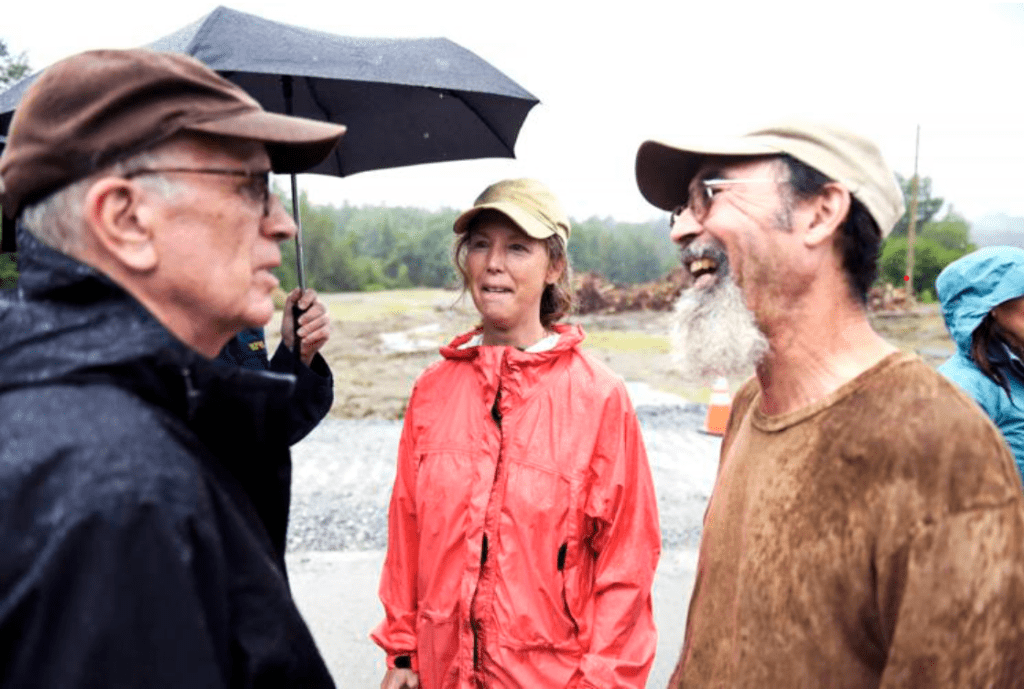
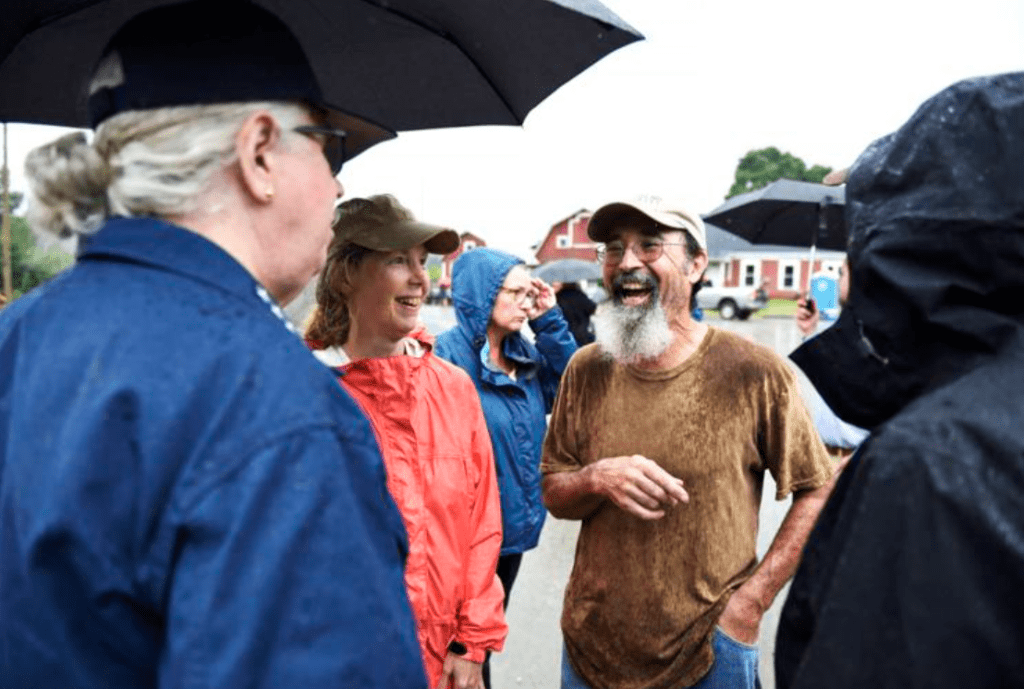
Teresa and Any Poginy, whose home was damaged by flood waters, speak with United States assistant secretary for health Rachel Levine and Sen. Peter Welch as federal officials toured flood-battered Red Village Road on Monday, Aug. 5, 2024. (Photos by Paul Hayes)
The swollen Hawkins Brook swept away over $100,000 in equipment and materials from Andy’s counter-making business, Counters by Design, and the resulting water, electric and road outages shut down Teresa’s hair salon, Teresa’s Touch of Style.
Confronting major expenses with no income, they impressed upon Welch the need for a fast federal response.
Teresa said she was pleased with the senator’s response, “He seemed to really care about what was going on. It sounds like he really wants to try to put some things in place for upcoming disasters and also to help with the current one.”
Other residents were less optimistic.
Jeremy Greer, his wife, and their three children had their home washed away by Sheldon Brook.
Six days later, Greer expressed frustration with the government response and the lack of direct funding for immediate assistance.
“How come we pay so much in taxes but there’s nothing to help the people that live here?” he asked.
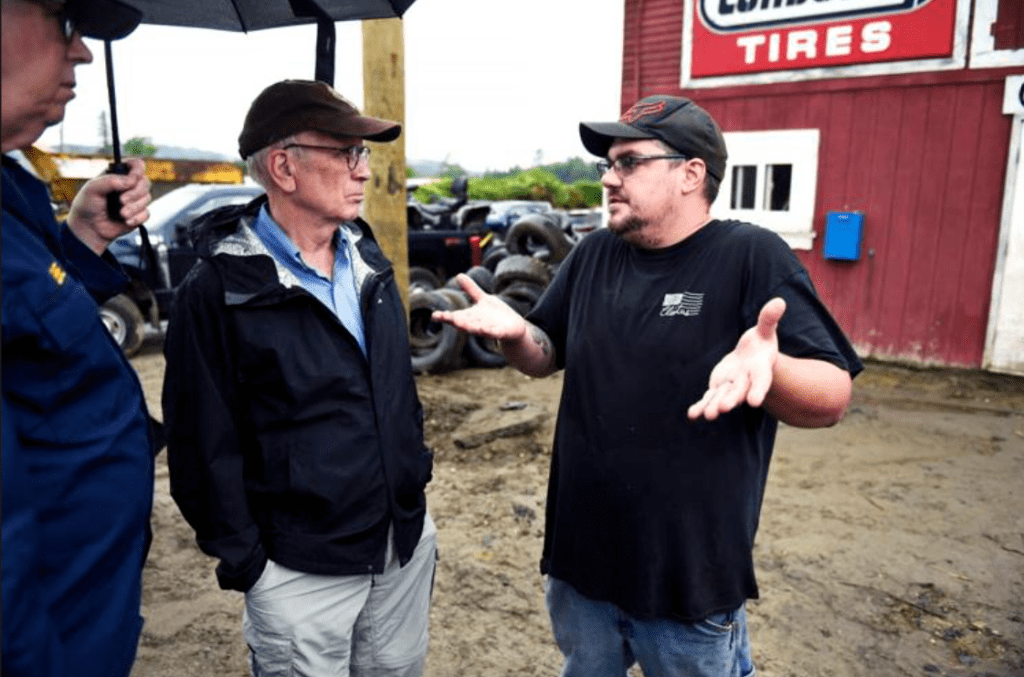
Shawn Tester, CEO of Northeastern Vermont Regional Hospital, lives adjacent to Red Village Road and has opened his land to ATVs, so that cut off residents can reach passable roads.
His message to federal officials was to act quickly to the help flood victims.
“The faster we get access to federal funds to support these poor people, the better off this community will be,” Tester said. “The two priorities now are, number one, get the towns the money so that we can rebuild the roads and infrastructure, and number two, make sure that we’re getting the money to the people who need it the most.”
Welch said he was moved after speaking with the flood victims, hearing their stories, and viewing the devastation.
“This is a quintessential Vermont village where everybody helps each other and it’s been destroyed. So it’s a lot of heartache and it’s really frustrating,” Welch said.
Stories of communities springing into action and neighbors helping neighbors reinforced Welch’s opinion that FEMA needed to cede some of the disaster aid process to local officials, with appropriate checks and balances to prevent fraud.
“We’ve got to have more authority at the local level because the folks here know what the problem is,” Welch said. “They know who’s legit and who isn’t. And they’re really invested in trying to help the business get back on his feet or a family to get resettled.”
He called it a bipartisan issue.
“I know I’d get some support from a lot of my Republican colleagues,” Welch said. “This could be happening in a in a total red district, right? It’s not whether you’re red or blue. This is whether you’re in the path of the storm.”
Story Written by Paul Hayes, Caledonian Record
